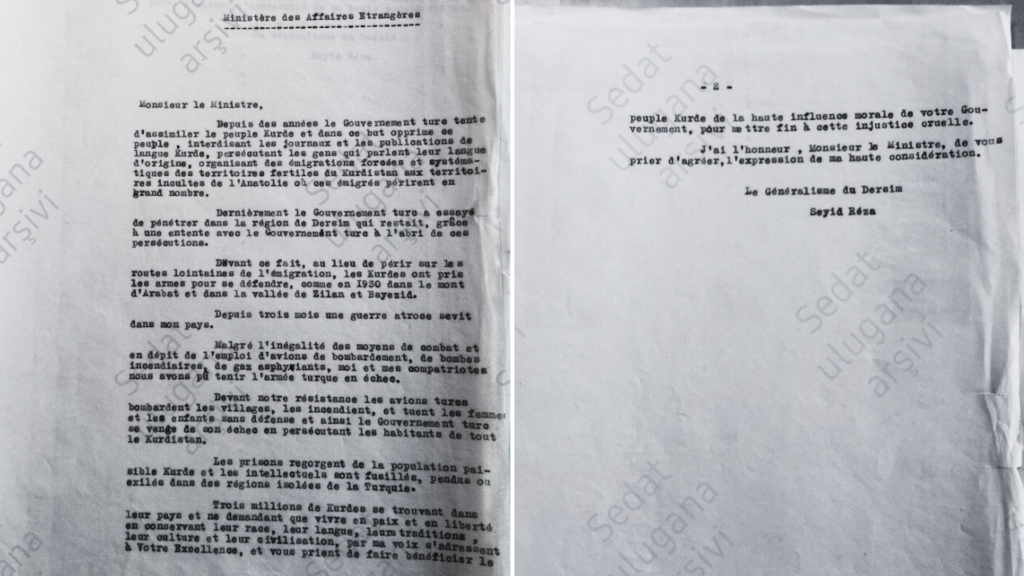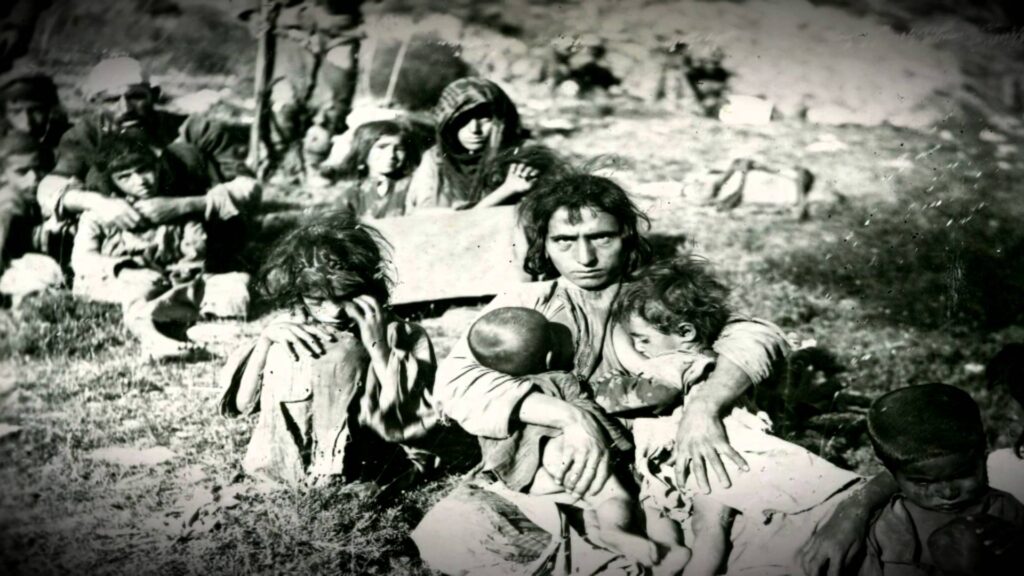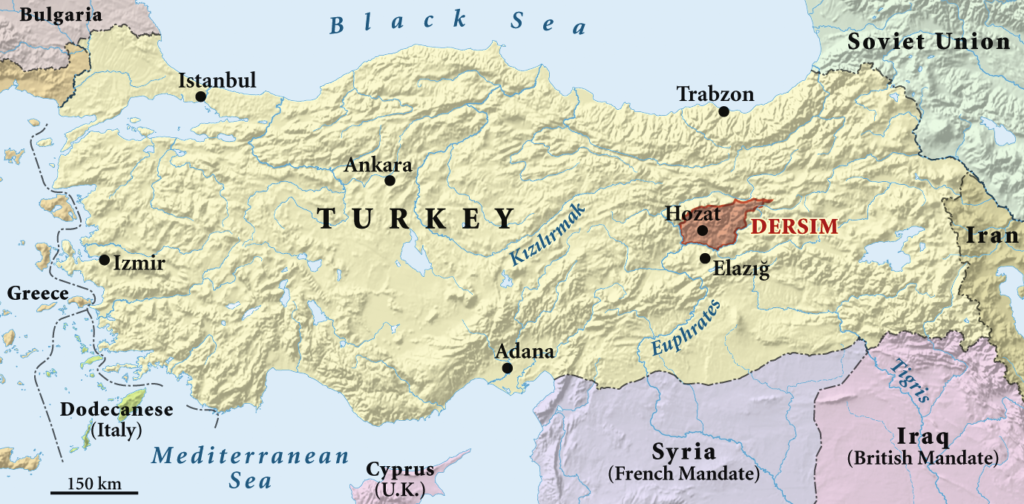The centenary of the Treaty of Lausanne, which drew borders without proper Kurdish representation and divided the Kurds across four nations, has sparked renewed debate. In the midst of these discussions, a letter sent by Seyit Rıza, the Alevi Kurdish political leader of a historical uprising starting in March 1937 in Dersim (Tunceli), Turkey, to the French Ministry of Foreign Affairs, has once again come under the spotlight.
In his letter of July 1937, Seyit Rıza accused the Turkish government of attempting to assimilate the Kurds. Referring to the Treaty of Lausanne, he alleged that Turkey had invaded Dersim using the Treaty as an excuse. He further states that defenceless, innocent people, including women and children, were subjected to a brutal massacre, and that Turkish forces used deadly chemical gases during this operation.

Speaking to MedyaNews, historian Sedat Ulugana noted that Seyit Rıza might have sent similar letters to the British and Italian signatories of the Treaty of Lausanne. Ulugana suggests that this letter demonstrates that the attack in question, which triggered the Dersim uprising, was part of a series of genocidal actions aimed at the Kurds.
Three years ago, during his research on the period, Ulugana uncovered evidence proving the authenticity of Seyit Rıza’s letter at the Nantes Diplomatic Archives in France, and subsequently shared it with the public.
Documents uncovered by Ulugana refute claims that the Kurdish intellectual Nuri Dersimi wrote and sent the letter from Syria without Seyit Rıza’s knowledge. According to Ulugana, this claim appears to be an attempt to discredit Seyit Rıza as an illiterate tribal leader manipulated by Dersimi.
Contrary to allegations suggesting Dersimi’s involvement, some sources refer to a classified later piece of correspondence by Turkey’s Minister of Internal Affairs of the time, Şükrü Kaya. This document implies that the letter was sent by someone named Yusuf associated with the Ottoman-Kurdish Bedirhani family, and was delivered to the United Nations.
However, based on the documents from the Nantes Diplomacy Archive, the main recipient of the letter was not the UN, which in any case was not established until 1945, but rather the French Ministry of Foreign Affairs. The letter was dispatched from Dersim to the French Embassy in Istanbul on 30 July and forwarded to the French Ministry of Foreign Affairs on 2 October.
The translated contents of the letter read:
“Dersim – Kurdistan, 30 July 1937
To the Ministry of Foreign Affairs of France,
For years, the Turkish government has been attempting to assimilate the Kurdish people, banning newspapers and publications, persecuting those who speak their mother tongue, and subjecting our people to torment by forcibly relocating them from the fertile lands of Kurdistan to the barren lands of Anatolia, where many have perished.
Recently, the Turkish government, due to a treaty signed with it, has also attempted to invade the Dersim region, which had been freed from these oppressions. In the face of this invasion, the Kurds, instead of perishing on the path of exile, have taken up arms to defend themselves, just as they did in 1930 on Mount Ararat, in the Zilan Valley, and in Beyazid.
For the past three months, a ruthless war has been waged in our land. Despite the disparity in military resources, the use of aerial bombardments, incendiary bombs and suffocating gases, my comrades and I have defeated the Turkish army.
In response to our resistance, Turkish planes bomb villages, leaving death and destruction in their wake, killing defenceless women and children. Thus, the Turkish government seeks revenge by oppressing the entire Kurdish population. Prisons are overflowing with peaceful Kurdish people, intellectuals are executed, hanged, or exiled to isolated regions in Turkey.
I, as the commander of Dersim, and on behalf of three million Kurds who desire to preserve their presence, language, traditions, culture, and civilisation in peace and freedom within their own country, beseech your excellency to use your esteemed authority to assist the Kurdish people. With profound respect, I extend my greetings to you.
Commander of Dersim, Seyit Rıza”

“Tunçeli Pacification Campaign”
Dersim had an autonomous structure inherited from the Ottoman era. However, the emerging nation-state model in the Republic of Turkey led to concerns about the status of the region. As a result, in December 1935, a law was passed on the administration of the region and the name of Dersim was officially changed to Tunçeli (later softened to Tunceli).
The people of Dersim (now officially Tunceli) rightly regarded the change of name as highly symbolic of the withdrawal of their autonomous status. After the passing of this law, the mainly Kurdish and Alevi population rose up in resistance under the leadership of Seyit Rıza. They refused to pay taxes or to send young men to the army.

A military operation was launched on 4 May 1937 to suppress the rebellion, called the Tunçeli Pacification Campaign. Around 110 soldiers were killed during this time.
The Turkish government’s efforts to suppress the Dersim uprising failed to achieve the desired outcome. As a result, Seyit Rıza was invited to the Erzincan provincial residence, ostensibly for peace negotiations, but he was arrested on arrival there on 13 September 1937.
Seyit Rıza and six others were executed in Elazığ (Elezîz) on the night of 14-15 November 1937 for their roles in the Dersim rebellion. Tens of thousands of Kurds in the region were subjected to forced migration. Additionally, more than 13,000 people living in the region were killed, according to official figures.
After the execution of Seyit Rıza and his associates, Turkish military operations and forced expulsions continued in the region until the late 1940s.










